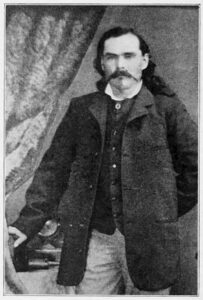
INTRODUCTION
The Bible paints a vivid picture of God communicating through His people. From the Old Testament to the New men and women heard God’s voice and echoed His words, serving as spiritual oracles that influenced early Christianity. They were catalysts of God’s will, their words turning the societal norms of their time on their head and warning of coming judgment for sin. God’s power, manifested through prophecy and other spiritual gifts, was a powerful tool behind the early Church’s triumphs.
Like any human endeavor, Christianity is not immune to the whims of pop culture. Over time, various trends have risen and fallen, sometimes overshadowing the core mission. There was an era when “born again” was the mantra on everyone’s lips, weaving itself into the corners of people’s lives. Then came a phase when Jewish-inspired music dominated, with hip churches favoring minor keys. For a spell, “laughing in the spirit” was the trend, and whole churches joined to be a part of this new practice. For over half a century, in Pentecostal circles speaking in tongues was exalted above other spiritual gifts, almost attaining an aura of worship. The latest emphasis in Pentecostal and charismatic pop culture is everything “prophetic.” There is prophetic dancing, singing, painting, drawing, and almost any other action to which a descriptive word may be attached.
Indeed, the Bible does acknowledge and emphasize prophecy. It is not a hollow term or an abstract concept but a genuine spiritual gift. The scriptures teach us that God’s divine gifts, including prophecy, have been bestowed upon us to encourage growth, learning, and transformation. They are tools given by God to help us become the people He has envisioned us to be, serving His purpose in our world.
So, the question we now face is, does this widespread application of the term dilute its true, Biblical meaning and significance? And if so, how do we navigate this tide while keeping our spiritual compass intact?
DEFINING THE “PROPHETIC”

Many associate prophecy with foretelling future occurrences, and while that can sometimes be the case, it’s not the essence of prophecy. Simply put, prophecy is the divine act of God expressing Himself through a human vessel. Therefore, a prophet is someone privileged to receive God’s messages and tasked with broadcasting these divine revelations to others.
The New Testament was written when prophetic activity was alive and well. Prophets served as God’s mouthpieces. In his letters, the apostle Paul frequently acknowledges the active role of prophets within the early Christian communities (Ephesians 4:11). According to 1 Corinthians 12:28, God appoints prophets in the Church for a purpose, reaffirming the continuity of this divine communication channel. Paul, in 1 Thessalonians 5:20-21, advises the Thessalonians not to despise prophetic utterances but to test everything and hold fast to what is good.
There exists a doctrine that spiritual gifts like prophecy have lost their relevance and ceased altogether. However, from my perspective, this notion lacks firm grounding in scripture. In my view, scripture doesn’t indicate that these gifts have expired. On the contrary, the scripture’s presence helps us discern and comprehend prophecy more accurately. A genuine prophet will always function within the boundaries set by God’s Word, never proclaiming a ‘revelation’ that contradicts the teachings of the Bible.
Hence, the gift of prophecy—God’s divine communication through a chosen individual whose words resonate with the Scripture and edify fellow believers, the Body of Christ—remains an invaluable, accessible, and potent blessing from God even today.
A PROPHETIC WHAT?
The concept of prophecy, over time, has been adapted and broadened to encompass an array of ideas, which is a common human tendency across many topics. At its heart, however, prophecy is about transmitting a divine message, predominantly through verbal communication.
Consider the songs of King David, divinely inspired and immortalized in the Book of Psalms. While one could deem this a form of ‘musical prophecy,’ the central force of prophecy remains—the conveyance of a message through words. In fact, we don’t have the original melodies anymore; the words are what endures.
Even when symbolism augments prophecy in the Bible, words are invariably at it’s core. The symbolic act was secondary to the spoken prophetic message when the Prophet Jeremiah wore a yoke to signify Israel’s impending subjugation. Similarly, when Ezekiel was directed to lie on his side, his physical posture was merely a backdrop for his spoken prophecies. Or when one man bound himself with Paul’s belt as a forewarning of Paul’s upcoming imprisonment, the subsequent verbal explanation was the actual prophecy.
Is engaging in activities like dancing or painting inappropriate to glorify God? It is not inherently wrong to partake in these activities, as they are talents bestowed upon us by God. However, it becomes problematic when we attempt to label such activities as “prophecy,” as this stretches the scriptural foundation of the gift and deviates from its intended purpose. When we think of prophecy as communication from God, we recognize the absolute power of the message conveyed. To assign a prophetic message to an action without a clear and meaningful connection is, at the very least, risky.
Consider the analogy of a doctor who chooses to communicate with patients through painting or dance instead of words. If you correctly interpret the dance or painting, you would understand your ailment, the necessary medicine, and the appropriate dosage. Some may find this comparison amusing, but it is essential to remember that a prophetic word often serves to correct, guide, and realign. The instruction of a prophetic word is vital to the health and strength of the body of Christ.

SO HOW DO WE KNOW?
The struggle to determine the authenticity of prophetic claims is a significant challenge. Since the early 1900s, teachings concerning spiritual gifts have undergone multiple transformations, often based on extrapolation and interpretation of previous beliefs and scriptures. Layers upon layers of ideas have been added, and new thoughts have emerged to fill the gaps in biblical evidence. Specific individuals and personalities have bolstered and authored many of these new ideas.
Some individuals have approached these matters with good intentions, genuinely believing they were advancing God’s kingdom. However, others have recognized an opportunity for personal gain, exploiting people’s trust and profiting from their time and resources. Unfortunately, this process has complicated the relatively straightforward concept of the Holy Spirit working through believers in diverse and beneficial ways. Consequently, many lives and entire families have been shattered by those who claim to prophesy and those who unquestioningly embrace these supposed “words of God.”
The Bible is the first and most important tool in discerning whether a “word” is from God. The very last and least reliable tool is what we “feel.” Unfortunately, the latter is often used to determine truth or error in these cases. The first question is not whether or not it “feels” like it’s a truthful word but does this word fit within the scripture and within the nature and character of God.

It is possible to find individual stories that might support the word you have heard from a “prophet,” however, the goal is not to cherry-pick stories but to look at the root and see if both the prophetic word and God’s word have the same root. God’s will, his purpose within humanity, along the lines and within the parameters of his holiness, is the foundational and root focus of God’s word. Does the word you have heard from the “prophet” align with this root?
The central theme in scripture is prioritizing God, seeking His presence, fulfilling His purpose, and persevering through hardships to achieve that goal. This doesn’t imply that God won’t bless us, meet our needs, and provide strength when we require it—He does love us. However, His primary focus is not primarily on our earthly blessings but on our spiritual well-being and effectiveness in His Kingdom, which should also be our primary focus.
Many individuals turn to God for answers to personal problems, like some seek guidance from psychics or palm readers. They may be discontent in their lives, longing for more wealth and material possessions to satisfy their earthly desires. In their pursuit of fulfillment, they seek prophetic words that align with those desires.
God certainly cares about how we feel. We should bring our struggles and problems to God. We can cast our cares upon Him and view Him as a close friend, even more intimate than a brother. However, it is vital to remember that the focus should be on seeking His presence, being part of His work, and prioritizing His Kingdom. Our goal is not to build a Kingdom on earth but to create a treasury in heaven of things that a dying world cannot corrupt.
The Bible instructs us to test and evaluate the messages we hear, distinguishing between those from God and those from human sources. Questioning these words is not wrong. Searching the scriptures to ascertain if what we have heard aligns with God’s purpose and character is essential. Additionally, engaging in discussions with mature Christians can help us discern whether the word we have received is truly from God. This is how the family of God works.
Acknowledging that we sometimes interpret vague “words” as highly specific to our own situations is also essential. This is why relying solely on our feelings is unreliable for discerning truth. Instead, we should first assess if a word aligns with God’s Word and, secondly, if it aligns with God’s character, nature, and purpose.
If a word does not align with these criteria, we should exercise great caution and careful consideration in how we proceed. It is not rebellion against God to question these things. It’s only rebellion when we have a heart to rebel against him. It’s not disobedience when we test and try these words to ensure we follow God. It’s wisdom, and it’s following the instruction of scripture.
CONCLUSION
The quest for truth and discernment in prophetic matters remains an ongoing struggle. Therefore, believers must exercise caution, diligently study the Scriptures, and seek wisdom and guidance when encountering such claims. By anchoring ourselves in biblical teachings and cultivating discernment, we can strive to protect ourselves and others from the potential harm caused by false prophecies.






